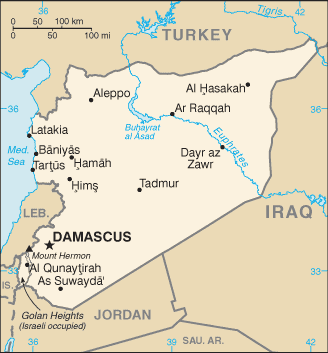US officials are expressing sentiments similar to other analysts that in recent weeks, the Syrian government’s momentum has waned, and that President Assad faces even more risk from the assorted rebels.
 The big surprise, however, is the admission from officials that Assad’s loss means gains for ISIS and al-Qaeda’s Nusra Front, the two largest rebel factions, and that they will be the primary beneficiaries of a fading Assad.
The big surprise, however, is the admission from officials that Assad’s loss means gains for ISIS and al-Qaeda’s Nusra Front, the two largest rebel factions, and that they will be the primary beneficiaries of a fading Assad.
US officials have often tried to present the war on ISIS and the war for regime change in Syria as separate things, and have insisted they could work simultaneously to undermine both Assad and ISIS.
In reality, the US simply doesn’t have any meaningful allies left in Syria, and they’re desperate to the point of trying to create a new rebel faction just so they have someone to back.
And despite admitting a huge problem with their current strategy, Gen. Martin Dempsey insists US policy toward Syria won’t change, and they’ll remain hostile to both ISIS and Assad at the same time.


